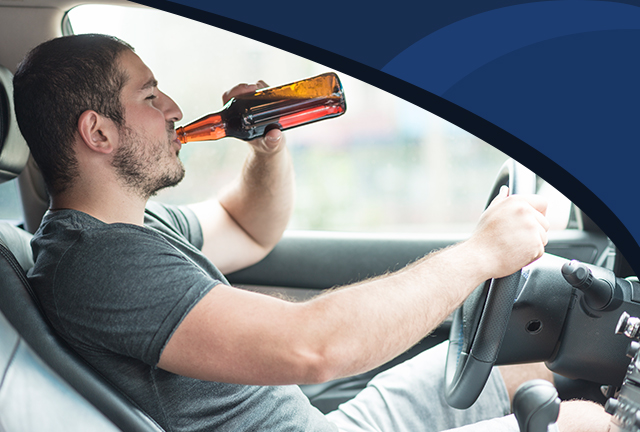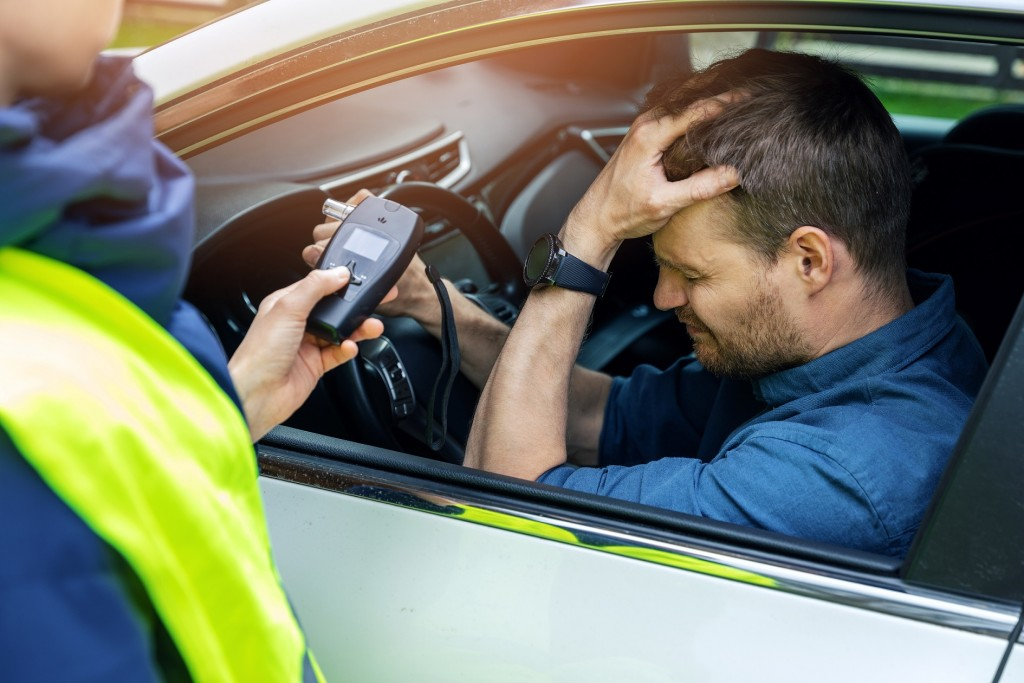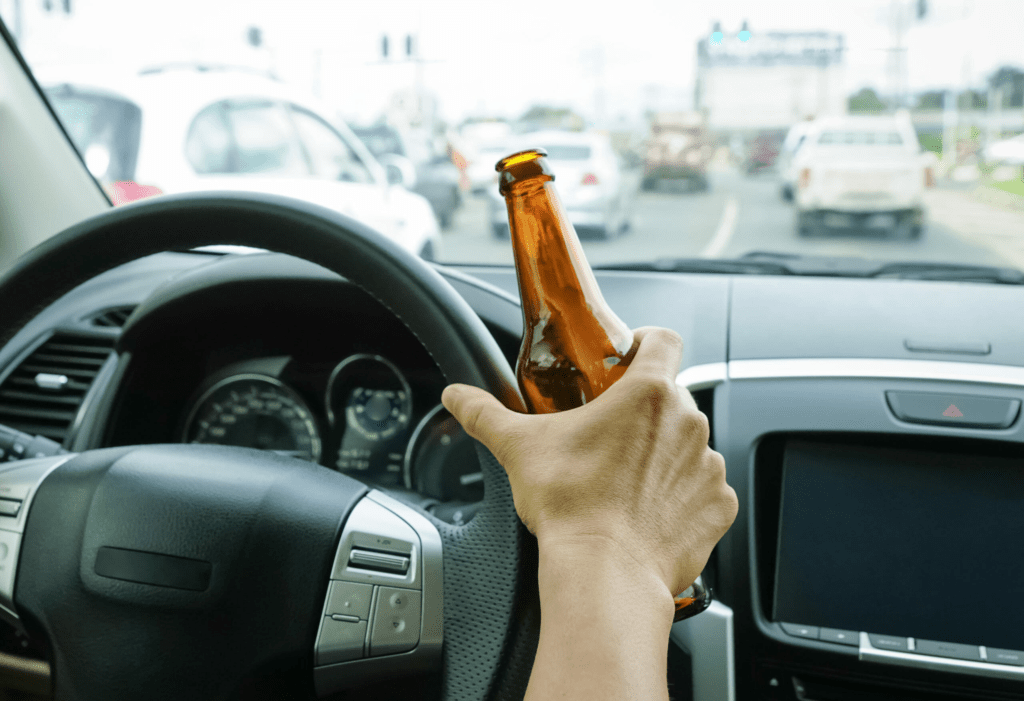What is the offence of driving under the influence (DUI)? Generally, the offence constitutes driving a vehicle while intoxicated. In some countries, this is a serious criminal offence.
The Road Transport Act 2013 deals with driving offences such as DUI. This article discusses the offence of DUI in New South Wales (NSW).
The Offence of DUI
In NSW, a person commits this offence when they use or attempt to use a vehicle while under the influence of alcohol or any other drugs. Under Section 112 (1) of the Road Transport Act 2013, a person must not, while under the influence of alcohol or any other drug:
- drive a vehicle, or
- occupy the driving seat of a vehicle and attempt to put the vehicle in motion, or
- if the person is the holder of an applicable driver licence (other than an applicable provisional licence or applicable learner licence) – occupy the seat in or on a motor vehicle next to a learner driver who is driving the vehicle.
Proving a DUI Offence
A court can find a person to be guilty of DUI in New South Wales if the prosecution proves beyond reasonable doubt that the person, while under the influence of alcohol or drugs:
- drove a vehicle,
- occupied the driver’s seat of a vehicle and attempted to put the vehicle in motion, or
- occupied the passenger seat of a car while a learner driver was driving.
Driving under the influence does not require a blood alcohol concentration (BAC) percentage reading, nor evidence that the alcohol or drug impaired the driving.
A person simply commits the offence if there is evidence they were under the influence of alcohol or drugs while driving, among the other instances mentioned in Section 112 of the Road Transport Act 2013.
Expert medical evidence?
One does not need to provide expert medical evidence to establish that an offender was under the influence of alcohol.
The case of DPP v Ridley [2015] NSWSC 1478 provides that any person who made observations of signs of intoxication, including friends, family, a police officer or bystanders, can give evidence of their opinion as to the extent of intoxication.

Penalties for a DUI Offence
In NSW, first time offenders face a fine of up to $3300 or 18 months’ imprisonment, or both. They will also be disqualified from driving for a period of between 12 months to 3 years (or for a period of between 6 months and 9 months with an alcohol interlock period of 24 months).
For repeat offenders or a second offence or subsequent offences, the offender faces a fine of up to $5500 or 2 years’ imprisonment, or both.
They will be disqualified from driving for between 2 to 5 years (or for between 9 months and 12 months with an alcohol interlock period of 24 months). In drug-related driving offences, one can raise the defence that the drug was for medicinal purposes.
DUI vs. Drink Driving Offences
How do DUI offences differ from drink driving? DUI involves drinking alcohol while driving; drink driving involves drinking before driving.
When a person faces a charge with a drink driving offence, such as driving with low-range (over the general alcohol limit but not over the middle alcohol limit), mid-range, or high-range BAC levels, evidence on the person’s blood alcohol content must be provided.
A breath test or breath sample conducted by the police often establishes evidence for the drink driving charge.
On the other hand, when a person is charged with DUI, the BAC, prescribed concentration, or a zero alcohol limit, is irrelevant. One must only prove that the offender was, in fact, under the influence of a drug or alcohol.
Evidence to establish such a fact may be the testimony of police officers who observed the offender’s driving, speech, behaviour, or smell that led them to believe that the person was intoxicated.
It is worthy to note that penalties for drink driving offences and DUI charges may differ because drink driving penalties note a legal limit or alcohol limits.
Case Law: Director of Public Prosecutions (NSW) versus Kirby [2017] NSWSC 1754
This case is related to the offence of driving under the influence of alcohol. Mr. Kirby faced a charge of driving under the influence of alcohol under Section 112(1)(a) of the Road Transport Act 2013. The Katoomba Local Court found him not guilty on the basis that the police failed to prove that the alcohol affected Mr. Kirby’s manner of driving.
The Director of Public Prosecutions (DPP) appealed to the NSW Supreme Court, arguing that the offence requires no proof from the police that proper control of driving was affected by alcohol.
The DPP argued that, to be found guilty of a DUI offence, it must only be proved that Mr. Kirby was under the influence of alcohol or any other drug at the time of driving; whether or not the manner of driving was affected by alcohol is irrelevant.
Court Findings
The NSW Supreme Court found that the Local Court Magistrate erred in its decision. The Court held that the offence requires no evidence that the consumption of alcohol affected the driving.
The Court referred to an old case, Molloy v McDonald (1939) 56 WN (NSW), which involved a charge of driving whilst under the influence of intoxicating liquor. In this case, the Court said that if it is once found by the Magistrate that a person is under the influence of intoxicating liquor and that person is driving a motor vehicle in a public place, the offence is committed.
The Court added that it is not necessary that the defendant should be both under the influence of intoxicating liquor and incapable of properly driving and controlling the motor vehicle.
The Court also noted that there are persons who are quite as capable of driving and controlling a motor vehicle when they are drunk as when they are sober. However, whether that is the fact or not, the legislature paid no regard to it.
The Court concluded that laws did not make incapacity for driving the test. The only test is whether the person driving is, in fact, under the influence of intoxicating liquor.
Hence, one does not need to provide evidence that the alcohol or drug affected the manner of driving. It is sufficient that the offender was, in fact, caught driving under the influence of alcohol or drugs.

Seeking Legal Advice
Perhaps you are facing charges for the criminal offence and are uncertain on how to approach the matter. This would require you to obtain legal advice.
JB Solicitors has a leading team of experienced lawyers that can give you the best legal services. We can assess the circumstances of your case, advise you on your defences, and answer any other queries you may have on the legal matter.
Contact Us
Contact us today.
